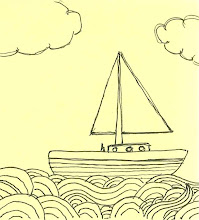The health of any society is best described by how it treats the least and the last within it. Most often the least will be the elderly and the poor, although there are certainly other categories which would fit quite readily within this description, not least the unborn and uneducated (see 2 posts previous).
This test can in fact be applied to any group of people and also to the individual. In fact, this is what Jesus is getting at when he brings up the startling story of the sheep and the goats in Matthew's gospel (Mt 25.31-46). In this story, Jesus tells one group that they have been made right with God because; 'I was hungry and you gave me something to eat, I was thirsty and you gave me something to drink, I was a stranger and you invited me in, I needed clothes and you clothed me, I was sick and you looked after me, I was in prison and you came to visit me.'
The righteous respond with genuine surprise to this. They don't remember responding to the King's need in this or any other way. The King replies; 'I tell you the truth, whatever you did for one of the least of these brothers of mine, you did for me.'
The converse is also true. What we fail to do for the least in our midst, we also fail to do for God. If Jesus really meant this, and we should assume that he did, we need to start praying for his compassion and love for the poor. When our lives are weighed at the end of all things, the powerful works we have performed will count for nothing, the rousing speeches we have given will be weightless and the most detailed and impassioned prophecies will no longer count for anything. All that will remain is the love that we have shown to each other.
"And now abide faith, hope, love, these three; but the greatest of these is love." (1 Cor 13.13)
Friday, 6 June 2008
Subscribe to:
Post Comments (Atom)

No comments:
Post a Comment